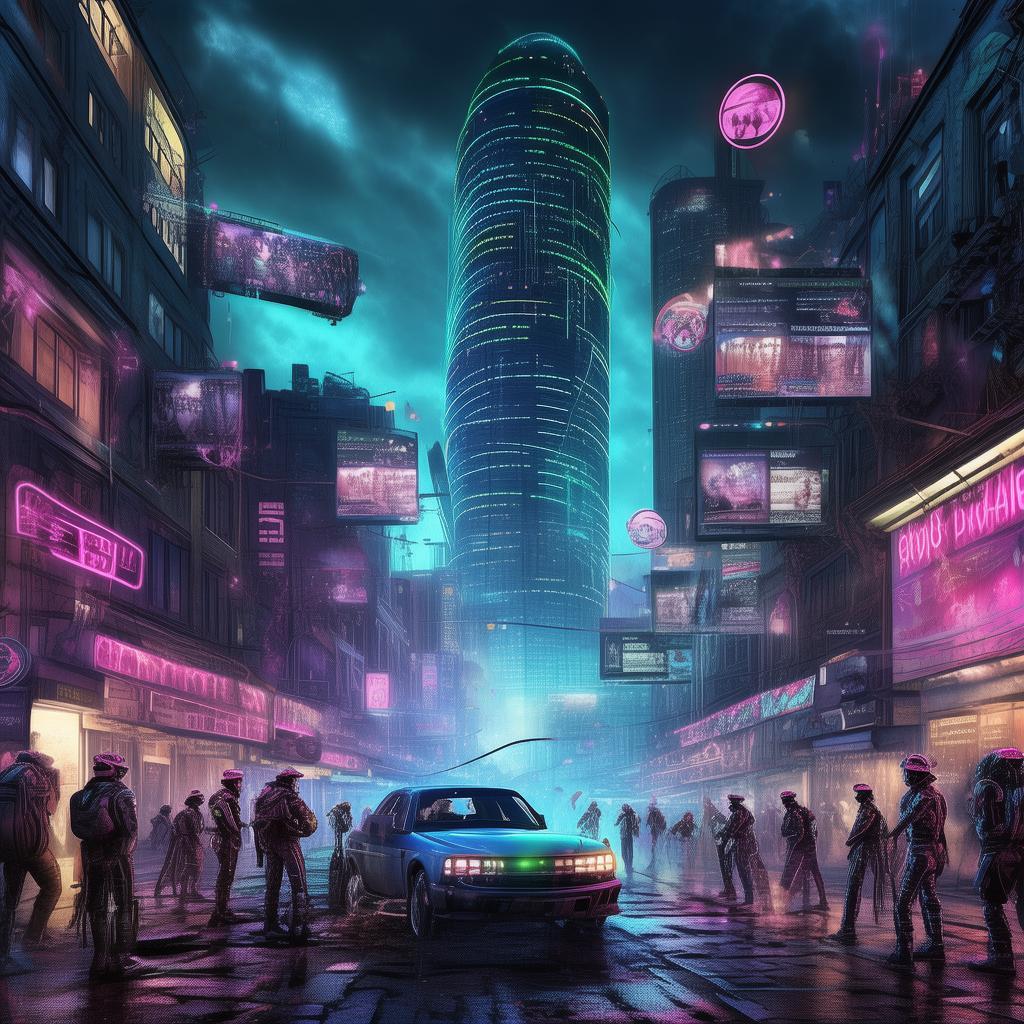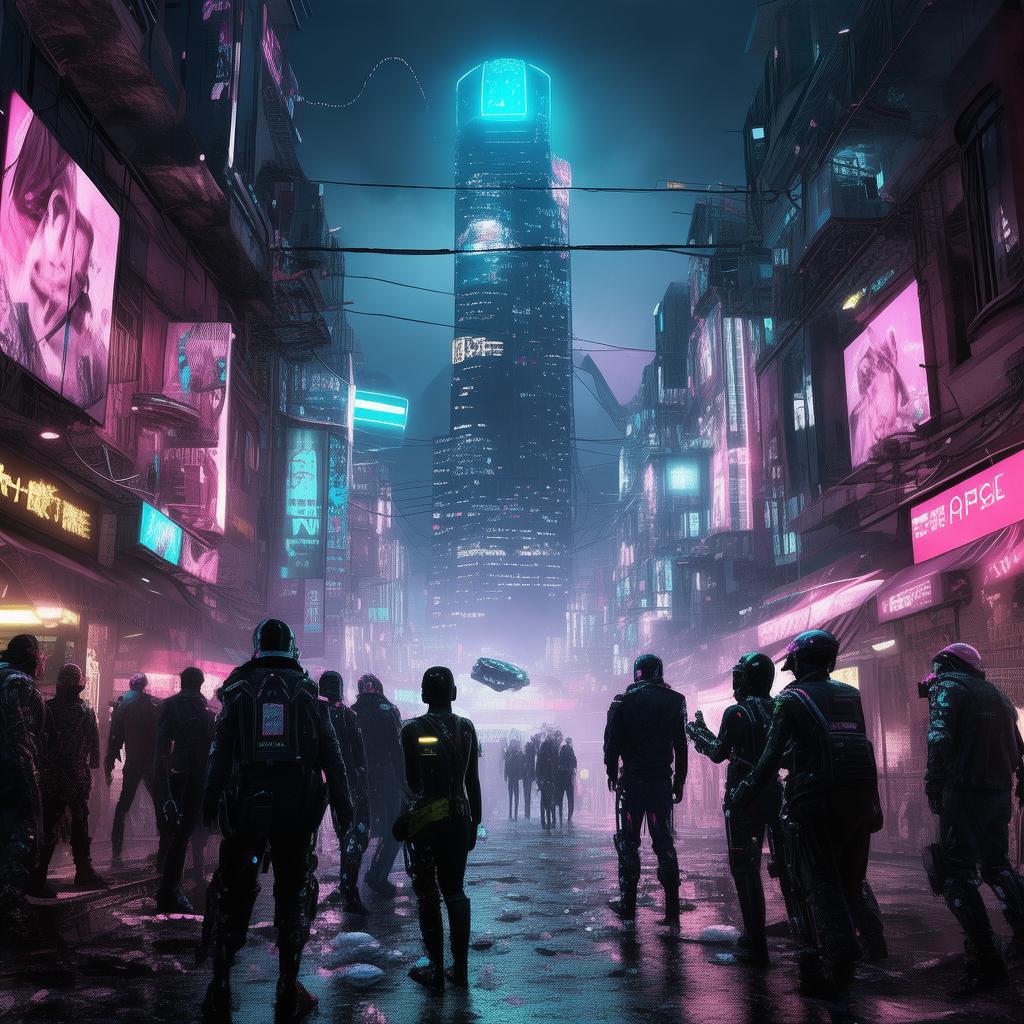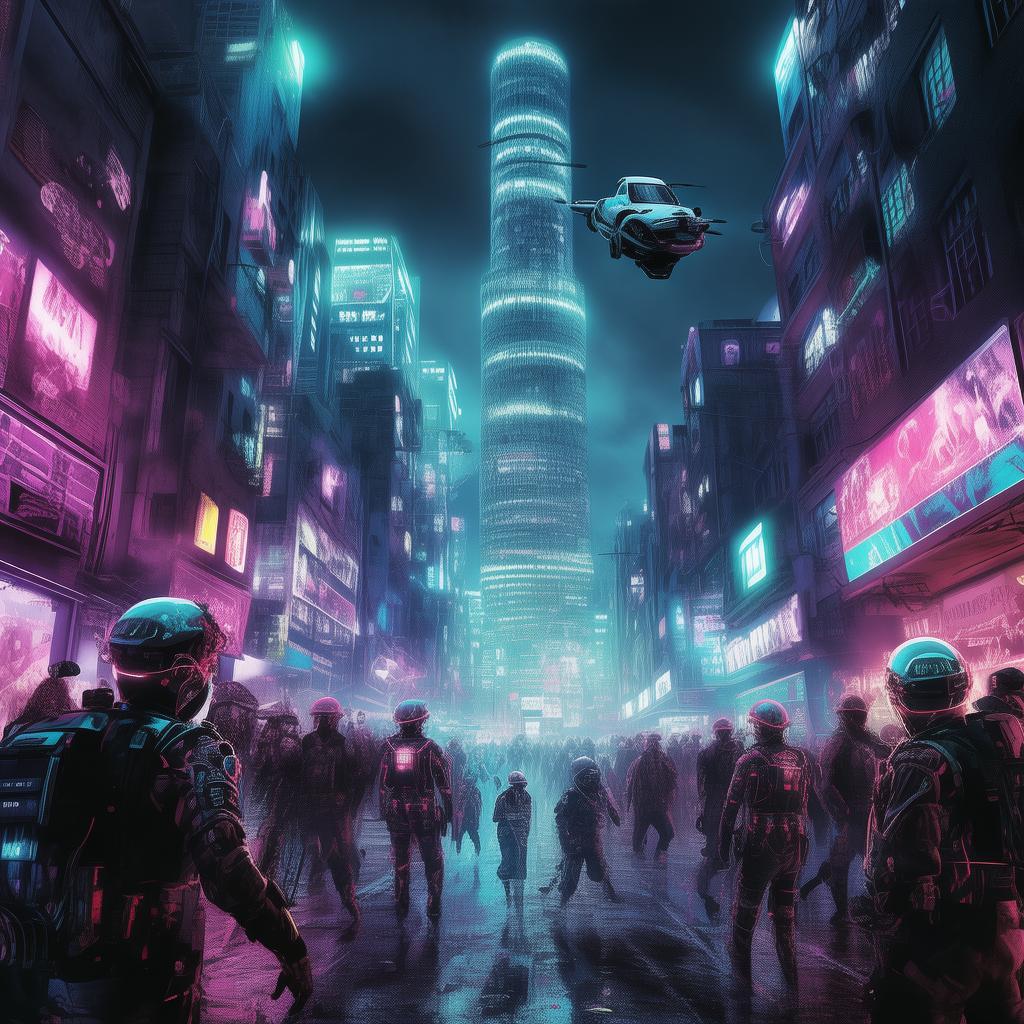The Last Echo of Neon Dreams
The neon lights flickered above the crowded streets of Neo-Tokyo, casting an ethereal glow on the faces of the city's denizens. The air was thick with the scent of ozone and the hum of a thousand electric currents. It was a city where the past and the future collided, where the boundaries between human and machine blurred, and where the last of the analog pioneers were fighting a losing battle against the digital tide.
Amidst the towering skyscrapers and the sprawling sprawl of the city, there was a small, dimly lit café that stood as a beacon of resistance. Inside, an old man named Kaito sat at a corner table, his fingers dancing over a worn-out typewriter. His eyes were a deep, piercing blue, and his hair was a wild tangle of silver and gray. He was the last of the analog pioneers, a man who had lived through the transition from the age of paper to the age of pixels.
Kaito had seen the world change around him, from the bustling markets of Tokyo to the silent, pixelated void of the digital age. He had watched as people became more connected through their screens, yet more isolated in their own reality. He had seen the rise of the cybernetic revolution, where humans were augmented with technology, and the lines between man and machine became increasingly indistinguishable.
The café was a sanctuary for those who still believed in the power of the analog—those who valued the warmth of a handwritten letter over the coldness of a digital message, those who cherished the sound of a vinyl record over the sterile click of a mp3 player. It was a place where the past and the future could coexist, if only for a moment.
One evening, as the sun dipped below the horizon and the city lights began to twinkle, a young woman named Aiko walked into the café. Her eyes were wide with curiosity, and her hair was a wild, untamed cascade of red. She was a recent arrival in Neo-Tokyo, a city that seemed to consume everything in its path.
Kaito watched her approach, his fingers pausing on the keys of the typewriter. She was different from the others; she had a spark in her eyes, a defiance in her posture. She was looking for something, something that the digital age had forgotten.
"Good evening," Kaito said, his voice a deep rumble that seemed to resonate with the very essence of the café.
"Good evening," Aiko replied, her voice soft yet determined. "I've heard about this place. The Last of the Analog Pioneers. Is that true?"
Kaito nodded, a knowing smile playing on his lips. "It is. I am Kaito. And you are?"
"Aiko," she said, her voice echoing with a hint of excitement. "I came here because I need to understand what it means to be human in this digital age."
Kaito looked at her, his eyes reflecting the neon glow of the city outside. "It means to feel, to touch, to experience the world beyond the screen. It means to remember that there is more to life than data and code."
Aiko nodded, her eyes filling with a newfound understanding. "I've seen the world through a screen my entire life. I've forgotten what it's like to feel the warmth of the sun on my skin, to hear the laughter of friends, to taste the sweetness of a fresh peach."
Kaito reached across the table and placed a hand on her arm. "Then it's time to rediscover those sensations. To find the analog within the digital."
As the days passed, Aiko and Kaito became inseparable. They spent their time exploring the city, from the bustling markets to the serene parks, from the neon-lit streets to the quiet alleys. They shared stories, laughed, and cried, all the while learning to connect in ways that the digital age had long forgotten.

But the digital tide was relentless, and soon the café began to feel the pressure. The government, which had long viewed the analog pioneers as a threat to their control, began to tighten their grip. They sent agents to spy on Kaito and Aiko, to disrupt their efforts to spread the message of the analog.
One night, as they sat in the café, Kaito looked at Aiko with a mixture of concern and determination. "We can't hide forever, Aiko. The time is coming when we must stand up and fight for what we believe in."
Aiko nodded, her eyes filled with resolve. "Then we will fight. We will stand up for the analog, for the human connection that the digital age has tried to erase."
The day of the revolution came quickly. The streets of Neo-Tokyo were filled with the sound of protest, with the voices of the analog pioneers echoing through the city. Kaito and Aiko stood at the forefront, their voices loud and clear, their message resonating with the hearts of those who had forgotten what it meant to be human.
The government responded with force, their agents swarming the streets, their technology overwhelming the human resistance. But the analog pioneers were not deterred. They fought with passion, with the knowledge that they were fighting for something greater than themselves.
In the end, the revolution was not won with technology, but with the power of human connection. The government's control began to crumble, and the people of Neo-Tokyo began to reclaim their humanity, to embrace the analog in their lives.
Kaito and Aiko stood side by side, their hands intertwined, their hearts filled with hope. The last of the analog pioneers had won, not with force, but with the power of human connection, the power of the analog in a digital dystopia.
And so, the Last Echo of Neon Dreams continued, a testament to the resilience of the human spirit, a reminder that in a world dominated by the digital, the analog still had a place to call home.
✨ Original Statement ✨
All articles published on this website (including but not limited to text, images, videos, and other content) are original or authorized for reposting and are protected by relevant laws. Without the explicit written permission of this website, no individual or organization may copy, modify, repost, or use the content for commercial purposes.
If you need to quote or cooperate, please contact this site for authorization. We reserve the right to pursue legal responsibility for any unauthorized use.
Hereby declared.









